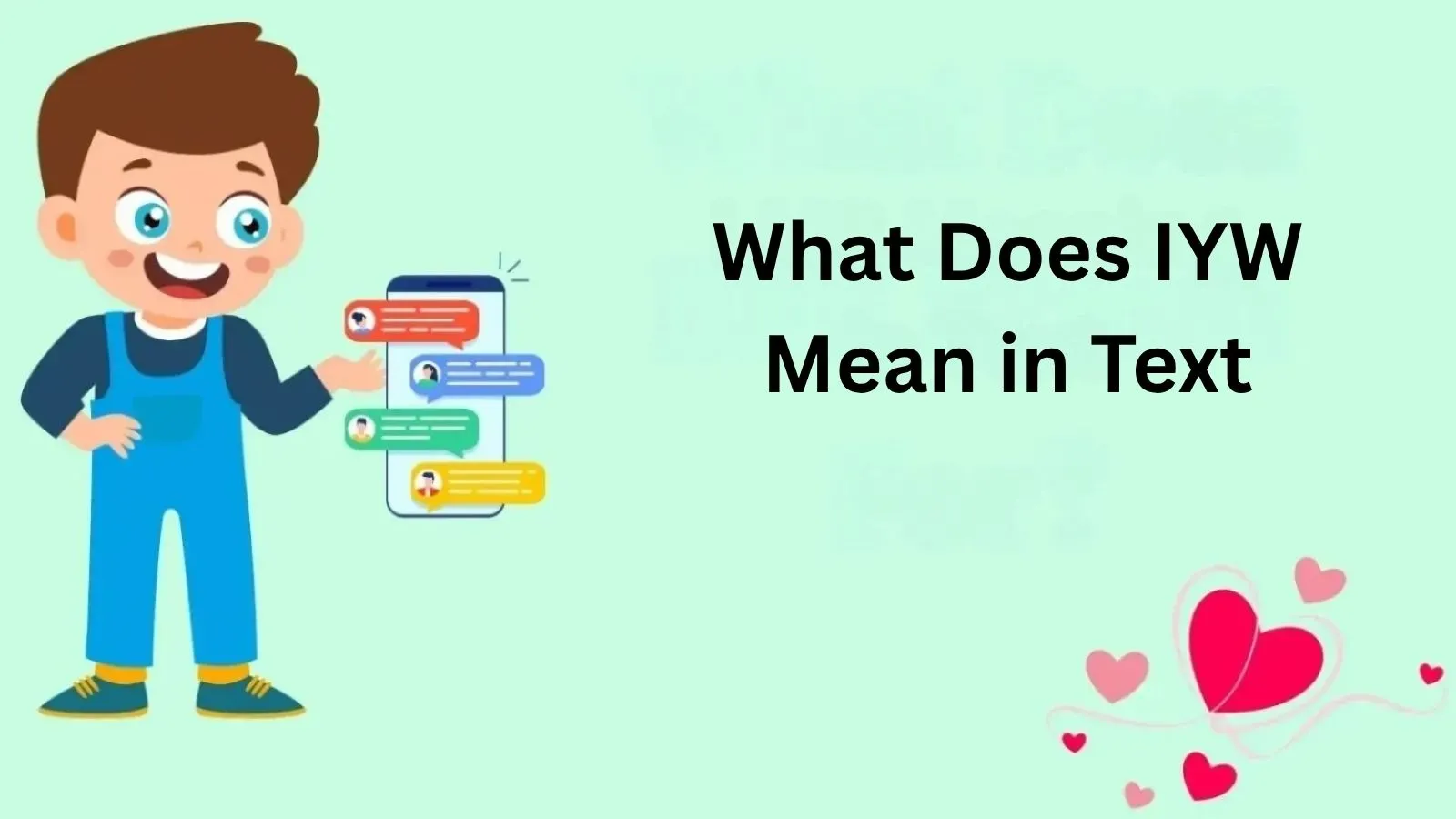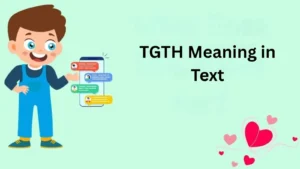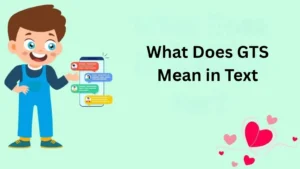Texting is a big part of our lives. We use it to chat with friends, share quick updates, or even flirt on dating apps. Short phrases and acronyms make texting fast and fun. One such acronym is IYW. But what does it mean?
Why should you care? IYW pops up in texts, social media, and even gaming chats. Knowing its meaning helps you avoid confusion and respond the right way. Whether you’re texting a friend or posting on Twitter, understanding IYW keeps you in the loop. \
This blog post dives into the meaning of IYW, its history, and how to use it. From casual chats to online communities, we’ll cover it all. Let’s get started and decode IYW!
Definition & Meaning
IYW stands for “If You Want.” It’s a casual way to suggest something without being pushy. People use it to offer an option or invite someone to join in. It’s short, simple, and friendly. You’ll see it in texts, group chats, or social media posts. It’s like saying, “Hey, do this if it suits you.”
Key Points:
- IYW means If You Want.
- It’s used to make suggestions or invitations.
- It’s informal and common in digital communication.
Examples in Dialogue:
- Friend 1: Wanna grab pizza tonight?
Friend 2: Sure, IYW, we can meet at 7. - Gamer 1: I’m starting a new match. Join IYW!
Gamer 2: Cool, I’m in! - Texter: I’m at the mall. Come by IYW.
Recipient: Sounds good, maybe later!
These examples show IYW as a low-pressure way to suggest plans or actions.
Background & History
The acronym IYW comes from the rise of texting and instant messaging in the early 2000s. As phones became popular, people wanted to type less. Acronyms like LOL and BRB paved the way for others like IYW. It likely started in casual online chats, where users shortened phrases to save time. IYW became a quick way to say If You Want without typing the full phrase.
Over time, IYW spread from texting to social media platforms like Twitter and Snapchat. It’s now common in gaming communities too, like Discord or Twitch. Its growth ties to the need for fast, informal communication. Today, IYW is used globally, especially among younger people who text or game often. It’s a small but mighty part of modern slang.
Key Points:
- IYW emerged in the early 2000s with texting culture.
- It spread through social media and gaming platforms.
- It’s popular for its brevity and casual tone.
Usage in Various Contexts
IYW is versatile and fits many situations. Here’s how it’s used:
Texting:
In personal chats, IYW softens suggestions. It’s a polite way to propose plans.
- Example:
You: I’m watching a movie later. Join IYW!
Friend: Cool, I’ll let you know.
Social Media:
On platforms like Twitter or Instagram, IYW invites followers to engage.
- Example:
Post: Streaming some Fortnite tonight. Watch IYW!
Comment: Nice! I’ll tune in.
Gaming:
Gamers use IYW to invite others to play or share tips.
- Example:
Gamer 1: I’m in a lobby for Warzone. Join IYW.
Gamer 2: Bet, I’m coming!
Casual Conversations:
In verbal chats, IYW is less common but can be used playfully.
- Example:
You: I’m grabbing coffee. Come IYW.
Friend: Maybe next time!
Key Points:
- IYW is common in texting, social media, and gaming.
- It’s a friendly, no-pressure way to suggest something.
Common Misconceptions & Clarifications
Some people misread IYW as something else, like “I’m Your Woman” or “If You Wish.” These are rare but can cause confusion. IYW almost always means If You Want in casual contexts. Another misconception is that it’s pushy. In reality, it’s the opposite—it gives the other person freedom to choose.
Key Clarifications:
- IYW is not formal; avoid it in professional emails.
- It’s not romantic or flirty unless the context suggests it.
- Misreading it as “If You Wish” can change the tone slightly.
Example of Misunderstanding:
- Texter: Party at my place IYW.
Recipient: Wait, “I’m Your Woman”?
Texter: Haha, no! If You Want!
IYW is safe and friendly but could be misread in formal settings. Always consider the audience before using it.
Similar Terms & Alternatives
If you don’t want to use IYW, try these alternatives:
- If You’d Like – More polite, slightly formal.
- Up to You – Casual, gives the other person control.
- Your Call – Informal, often used in decisions.
- Whenever You Want – Longer but clear.
Comparison Table:
| Term | Tone | Context | Example |
| IYW | Casual | Texting, gaming | Join the game IYW! |
| If You’d Like | Polite | Casual or semi-formal | Call me if you’d like. |
| Up to You | Neutral | Decisions, casual chats | Pizza or sushi? Up to you. |
| Your Call | Informal | Quick decisions | Meet at 6? Your call. |
These options work depending on the vibe you’re going for.
How to Respond to IYW
Responding to IYW depends on your mood or the situation. Here are styles with examples:
Casual Response:
Keep it simple and friendly.
- Texter: Movie night IYW!
You: Sounds fun! I’m in.
Funny Response:
Add humor to keep the chat light.
- Texter: Grab tacos IYW.
You: Only if they come with extra guac!
Professional Response:
Stay polite and clear, especially if it’s a work contact.
- Colleague: Join the Zoom call IYW.
You: Thanks for the invite. I’ll check my schedule.
Privacy-Conscious Response:
Decline without sharing too much.
- Texter: Party tonight IYW!
You: Appreciate it, but I’m busy tonight.
Key Points:
- Match the tone of the sender.
- Keep responses short and clear.
Regional or Cultural Differences
IYW is mostly used in English-speaking countries like the US, UK, and Australia. It’s popular among teens and young adults who text or game. In non-English cultures, similar phrases exist but not always as acronyms. For example:
- In Spanish, “si quieres” (if you want) is used but rarely shortened.
- In French, “si tu veux” is common in casual speech.
In some regions, IYW might be less common than local slang. For instance, in the UK, “if you fancy” is more popular. Cultural differences matter—IYW might feel too informal in conservative cultures. Always check the context before using it abroad.
Key Points:
- IYW is mainly English-based.
- Non-English languages use full phrases instead of acronyms.
- Regional slang may replace IYW.
Comparison with Similar Terms
Here’s how IYW stacks up against similar terms:
| Term | Meaning | Tone | Best Used In |
| IYW | If You Want | Casual | Texting, gaming |
| IYL | If You’d Like | Polite | Semi-formal chats |
| UTC | Up to You | Neutral | Decisions, casual chats |
| IYWish | If You Wish | Formal | Rare, written contexts |
Key Differences:
- IYW is shorter and more casual than IYL.
- UTC focuses on decision-making, not suggestions.
- IYWish is rare and sounds outdated.
Usage in Online Communities & Dating Apps
IYW is popular on platforms like Twitter, Discord, and Tinder. On Twitter, it’s used to invite engagement without being pushy.
- Example Post: Streaming some art. Check it out IYW!
In gaming communities like Discord, it’s a quick way to invite players.
- Example: New lobby for Apex. Join IYW!
On Tinder, IYW can sound flirty but casual.
- Example: Coffee this weekend IYW?
Tip: Respond with enthusiasm or a polite decline to keep the vibe light. - Good Response: Coffee sounds great! I’m free Sunday.
- Polite Decline: Thanks, but I’m swamped this week.
Key Tips:
- Use IYW sparingly on dating apps to avoid seeming too casual.
- Match the platform’s tone—playful on Twitter, friendly in gaming.
Hidden or Offensive Meanings
IYW is generally safe and has no offensive meanings. However, tone and context matter. In a serious or formal setting, it might seem too casual or dismissive. For example, using IYW in a work email could make you sound unprofessional. Rarely, it might be misread as flirty if used in a romantic context.
Example of Misinterpretation:
- Texter: Meet me tonight IYW.
Recipient: Is this a date or just hanging out?
Key Points:
- IYW is not offensive but can be misread as flirty.
- Context matters—avoid it in formal or sensitive situations.
Suitability for Professional Communication
IYW is not suitable for professional settings. It’s too informal for emails, reports, or meetings. Instead, use full phrases or more polite alternatives like “If you’d like” or “Should you wish.”
Example in Professional Context (Avoid):
- Email: Join the meeting IYW.
This sounds too casual and could confuse colleagues.
Professional Alternative:
- Email: Please join the meeting if you’d like.
Key Points:
- Stick to formal phrases in work settings.
- Use IYW only with colleagues you know well in casual chats.
FAQs
- What does IYW mean in texting?
It means If You Want, used to make casual suggestions. - Is IYW rude?
No, it’s friendly and low-pressure, but avoid it in formal settings. - Can I use IYW on dating apps?
Yes, but sparingly. It can sound flirty, so clarify your intent. - Is IYW used outside English-speaking countries?
It’s mostly English-based, but similar phrases exist in other languages. - What’s a good alternative to IYW?
Try If You’d Like or Up to You for a similar vibe. - Can IYW be misread?
Rarely, it might be confused with If You Wish or something flirty.
Conclusion
IYW is a handy acronym meaning If You Want. It’s perfect for casual texting, gaming, or social media. It keeps suggestions friendly and low-pressure. From its roots in early texting to its use on Twitter and Tinder, IYW is a staple of modern slang. It’s not formal, so avoid it in professional emails. Misunderstandings are rare, but context matters. Whether you’re inviting a friend to hang out or asking someone to join a game, IYW keeps things light. Next time you see it, you’ll know exactly how to respond. Keep texting fun and stay in the loop!



